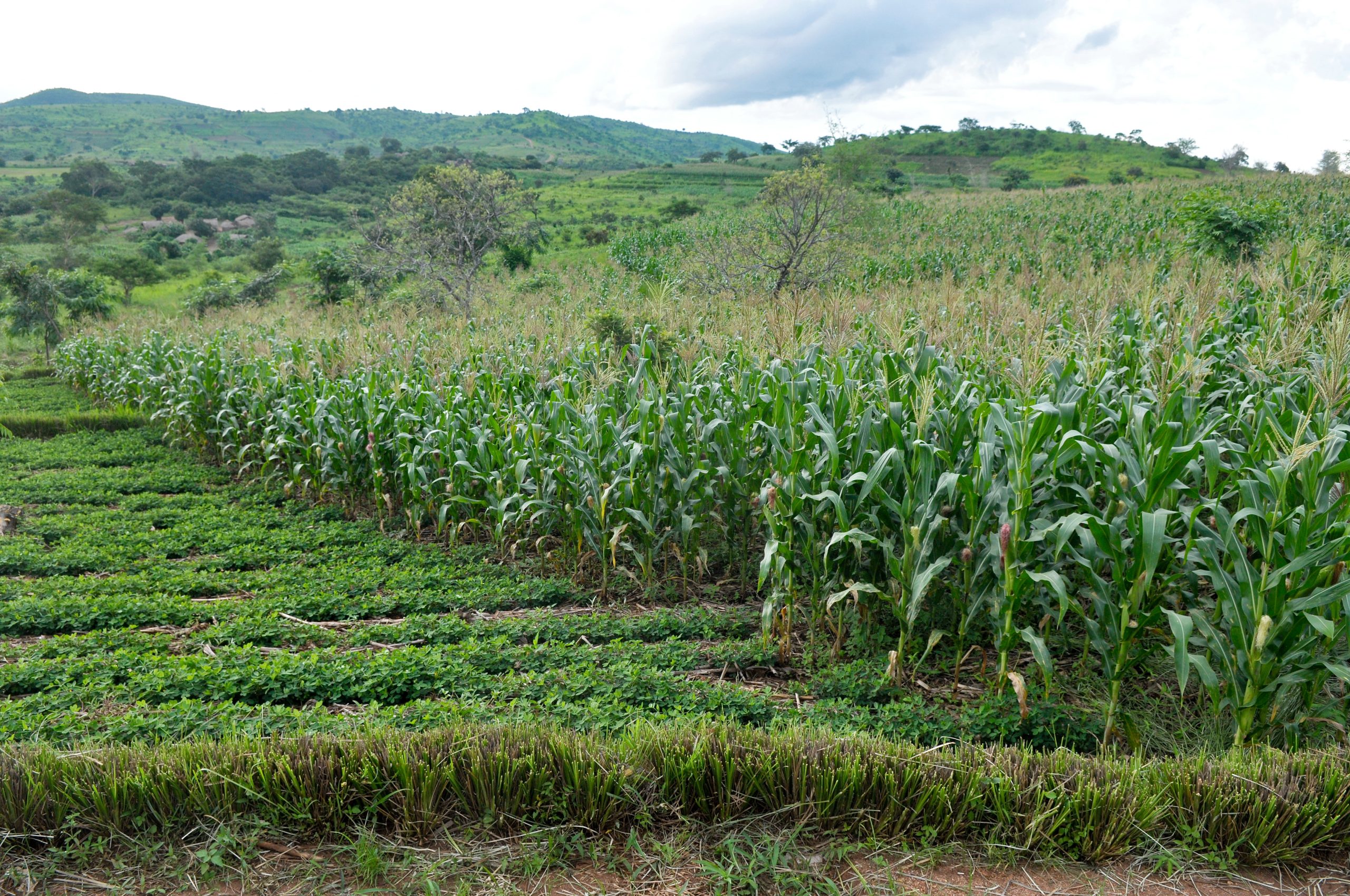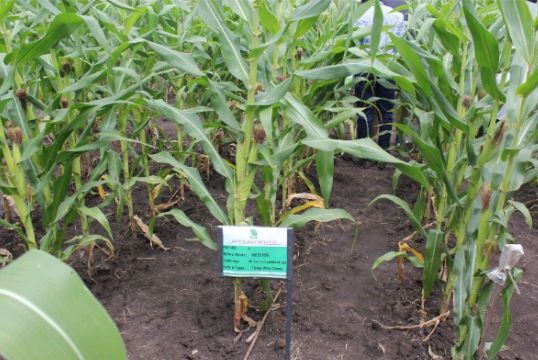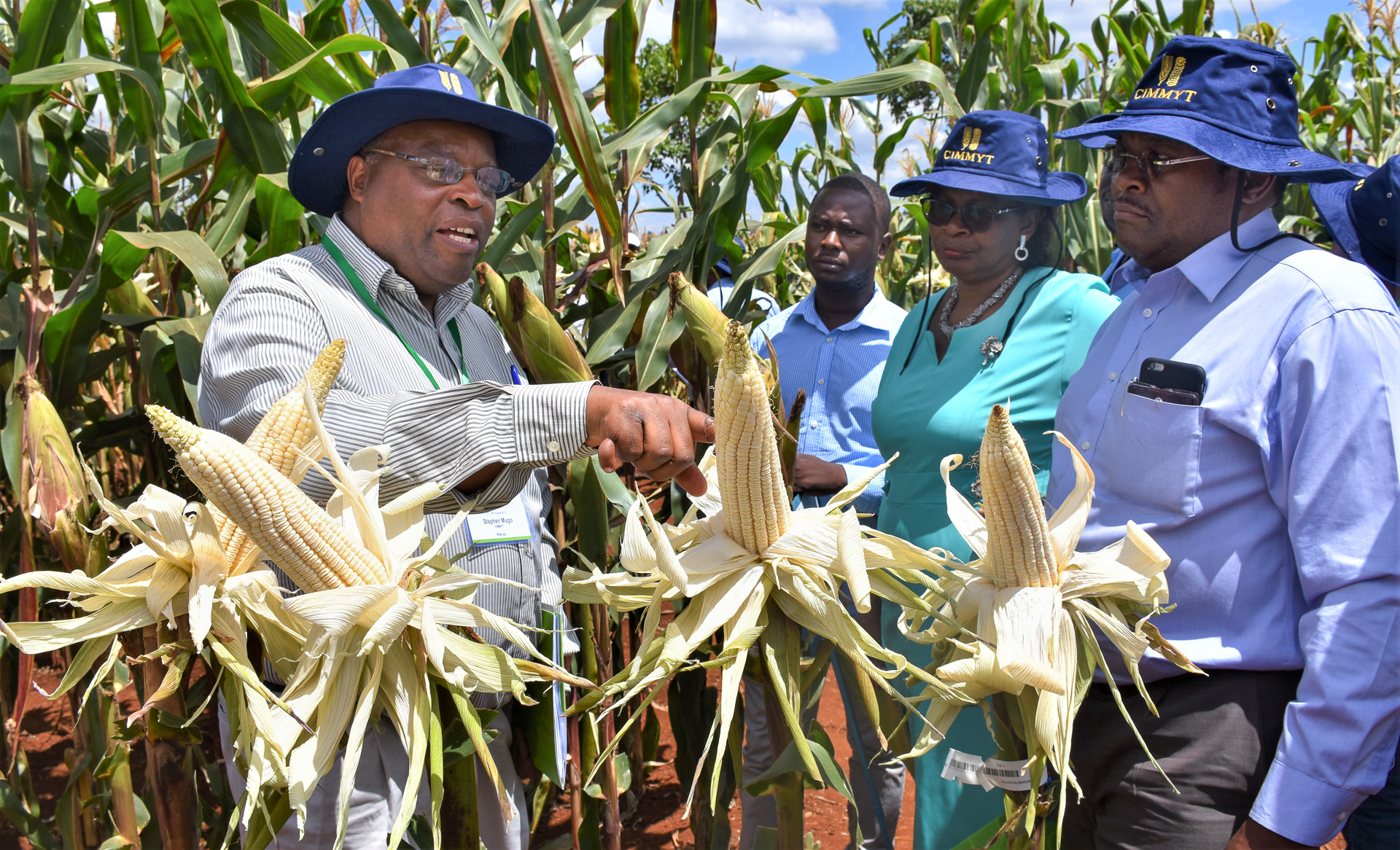The name TELA is derived from the Latin word tutela, which means “protection.” The TELA Maize Project is a public-private partnership led by the African Agricultural Technology Foundation (AATF) working towards the commercialization of transgenic drought-tolerant and insect-protected (TELA®) maize varieties to enhance food security in sub-Saharan Africa. Launched in 2018, the TELA Maize Project builds on progress made from a decade of breeding work under the Water Efficient Maize for Africa (WEMA) Project.
Africa is a drought-prone continent, making farming risky for millions of smallholders who rely on rainfall to water their crops. Climate change will only worsen the problem. Identifying ways to mitigate drought risk, stabilize yields, and encourage small-scale farmers to adopt best management practices is fundamental to realizing food security and improved livelihoods for the continent. Drought is just one of the many challenges facing sub-Saharan African farmers. Insects pose additional challenges as farmers in the developing world have little or no resources to effectively manage them. Insect protection complements and protects yield made possible through research and development.
Through TELA, AATF and its partners are pursuing the regulatory approval and dissemination of new biotech/genetically-modified maize seeds containing either an insect-resistant trait or the stacked insect-resistant and drought-tolerant traits across seven target countries in Africa (Ethiopia, Kenya, Mozambique, Nigeria, South Africa, Tanzania and Uganda). The transgenic technology, including gene constructs, transformation and other recombinant DNA technologies, and other proprietary information and materials regarding the transgenes, owned by Bayer CropScience LP (formerly Monsanto Company), is licensed royalty-free to the partners for use in the project.
To the extent where their germplasm is transformed/incorporated into finished lines, Bayer and CIMMYT further grant AATF the license to commercially release the transgenic maize varieties within the partner countries, provided that no royalty fee shall be charged by AATF/its sublicensees, and subject to compliance with all regulatory, biosafety and stewardship requirements. CIMMYT’s non-transgenic parental lines which may be used for introgression in this project have been shared under the terms of the Standard Material Transfer Agreement (SMTA) of the Plant Treaty, and remain available to other third parties outside the project in the same way. The partner countries are in different stages of the approval process to test and commercialize TELA® hybrids, which will determine when farmers can access the improved TELA seeds.
Seed companies can receive license rights to produce and commercialize the new TELA® hybrids under their private brand from AATF in due course. Licensed seed companies will access the technology royalty-free for them to produce and sell the seeds to farmers at prevailing market prices. Better yield performance, combined with improved seed quality, will deliver more value to farmers and create more demand and potential for the seed brand.
Smallholder farmers benefit from TELA maize, as it provides better drought tolerance, protection against stem borers, and partial but significant protection against fall armyworm. As a result, smallholders will spend less money on insecticides and reduce their exposure to these chemicals, besides benefiting from improved yields and better grain quality.


 Innovations
Innovations 
